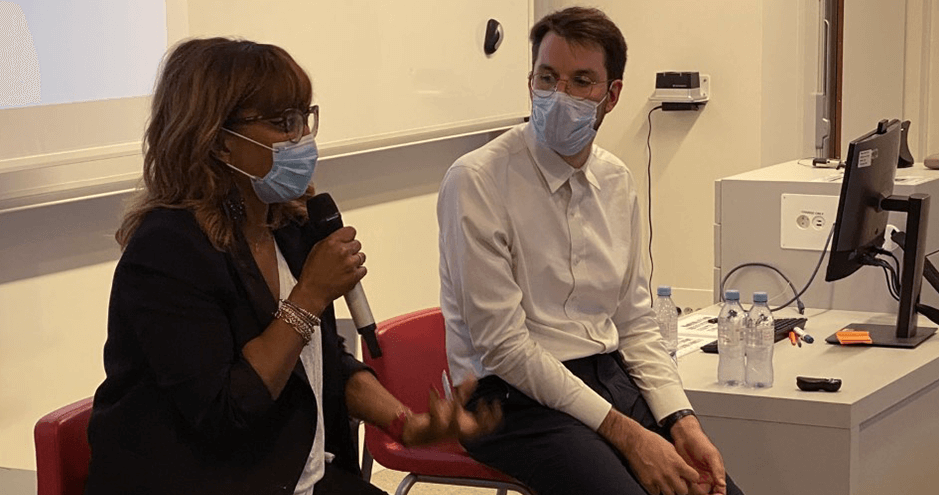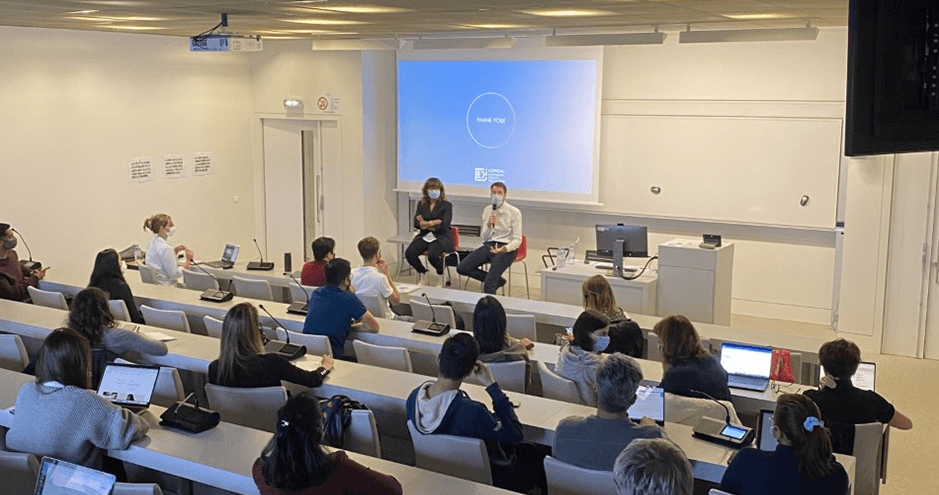How to Become an Inclusive Leader: the L’Oréal Example
The HEC DiversiTALKS conference series launched its fifth season by inviting two leading advocates for inclusion from L’Oréal, Linda Bergeron and Théo Leccia. Moderated by HEC law professor Matteo Winkler, the hybrid exchange tackled challenging questions on implementation, bias and training in business settings. All were destined to make inclusion more than just a theory or idea.
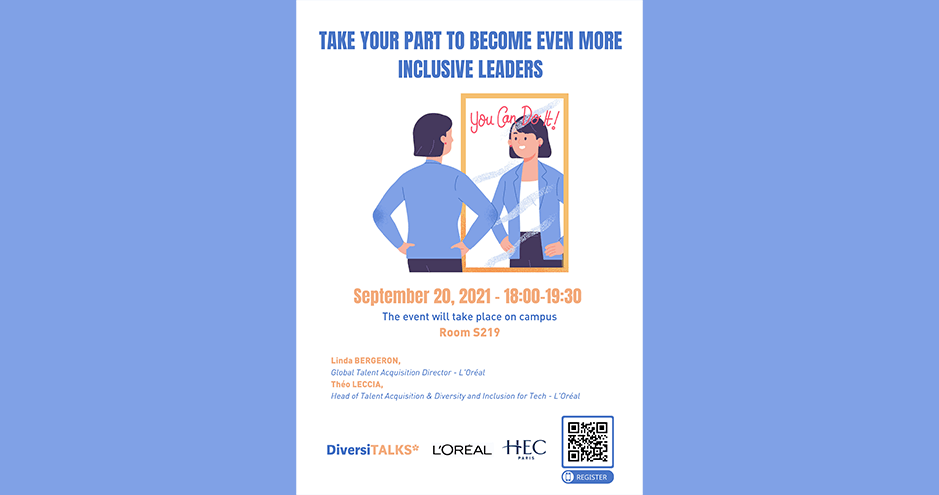
“How can you ensure the consistency of values across the countries where L’Oréal operates? How can you guarantee that corporate diversity training effectively makes all your employees agents of changes within and without L’Oréal? How do you measure a manager’s inclusiveness once you have to decide about salary raises and bonuses? These and other questions from the hybrid audience attending the latest HEC DiversiTALKS series once again set the tone for a frank debate on “How to Become an Even More Inclusive Leader”. Such issues have been explored by DiversiTALKS since its inception in February 2017. Introduced this time by HEC Chief Diversity Officer Marcelle Laliberté, the September 20 on campus exchange was followed by students from across the school’s years and disciplines.
To answer them, DiversiTALKS organizers invited two specialists in inclusion at L’Oréal, Linda Bergeron and Théo Leccia. Since 2016, Bergeron has been the Global Vice President at L’Oréal’s HR, Communications, CSR and Public Affairs. Answering the challenge of bias is a daily obligation for her: “We’ve been pushing training at all levels, from recruitment to floor management,” she explains. “But it remains a challenge: to go forward, we need to be aware of our own prejudices. Happily, the results of our inhouse courses have been impressive and the results are there to see.”
No Pay Gaps and Top Management Parity
Théo Leccia, L’Oréal’s Head of Talent Acquisition/Diversity and Inclusion department concurs: “There’s been huge progress these past 10 years at L’Oréal,” he says. “Since 2019, for example, there’s no longer a pay gap between women and men. And the percentage of women in our top management posts has risen from 40% in 2010 to 54% this year.” But Leccia insists that his company is not sitting on its laurels: “We need to push further. Each one of us must work on her or himself. Are we guilty of sexism, racism, agism? even unconsciously? We must deconstruct our decision-making processes to be certain that our behavior is unbiased.” The former law graduate remains optimistic, nevertheless: “I’m sure that, contrary to earlier generations, yours will incarnate all these inclusion and diversity values,” he says, pointing to the students. “It will be a no-brainer, since it makes moral and business sense.”
Still, Leccia points to unknown challenges that could spring up: “New kinds of biases will spring up, you have to be aware that revealing them is a daily task. So, you must keep on learning throughout your career, stay humble. At L’Oréal, we’re measuring our progress all the time.”
To the Benefit of All
Matteo Winkler closes the 90-minute exchange by pointing out the links between his guests’ personal stories and what research is proving: “Academic literature shows that diversity training programs simply aren’t enough yet – and the L’Oréal experience confirms this. Training must be accompanied by both bottom-up and top-down implementation of the company’s values so that when a company says it cares about diversity it’s not just window dressing.”
He concludes: “Inclusiveness, in fact, is a day-to-day practice which demands periodic training, storytelling, a focus on both sexual harassment and microaggressions, bias awareness campaigns and so forth. These are all things we could and should implement in our campus here at HEC, to the benefits of all HEC communities, especially to the students.”
Read Also
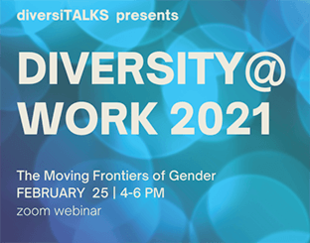
How has the COVID-19 crisis and its economic and social consequences shifted the boundaries of gender in the workplace? In its third debate of the year, the HEC DiversiTALKS conference series involved 10...
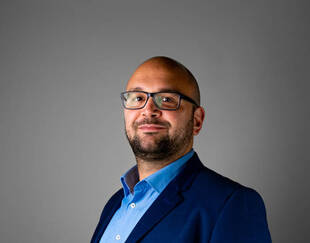
HEC Paris has created a new position of Chair of Diversity Committee and appointed Professor Matteo Winkler.
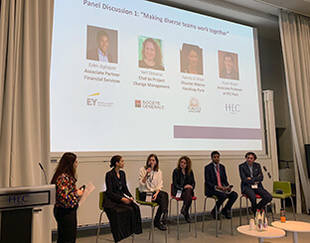
The 14th HEC DiversiTalks explored how companies engage in promoting equality by hiring diverse profiles and facilitating healthy working environments. The February 27 event brought together students...
